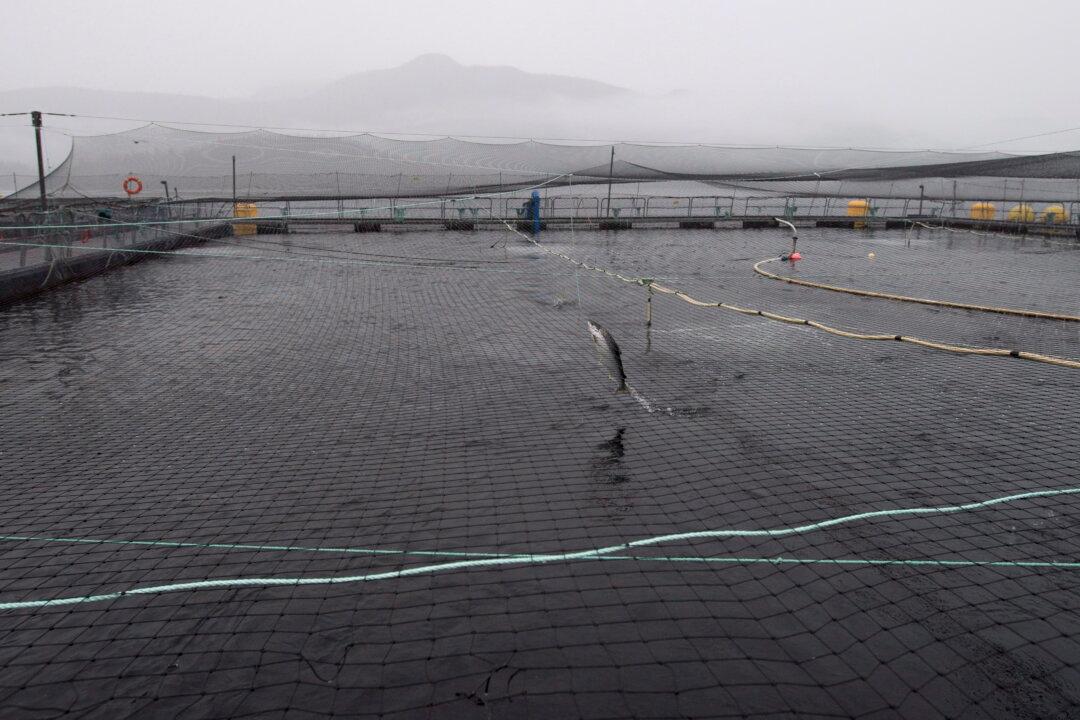A report commissioned by the BC Salmon Farmers Association says the proposed federal ban on marine net-pens in British Columbia would cost taxpayers billions and have “severe consequences” for Canada’s economy, Indigenous communities, and food security.
The report by economics firm RIAS Inc. says ban would result in $9 billion of “unnecessary costs” to taxpayers to close the sector and subsidize companies with “unproven closed containment technology.”





